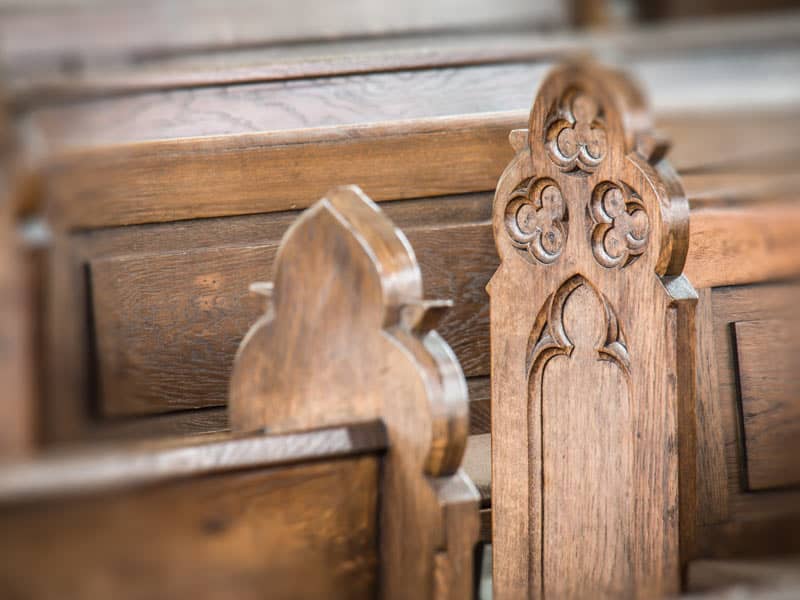Leaders of more than 200 groups ranging from the People for the American Way Foundation to the Children's Defense Fund to Protestant, Catholic, Jewish and Unitarian Universalist congregations, met April 4-6 to initiate the Progressive Religious Partnership, pledging to fight for social justice in a political climate they say threatens to erode the work of King and others.
"There's a lot of power in coming together," said Rabbi Steven Jacobs of Temple Kol Tikvah in Los Angeles, one of the featured speakers and a longtime champion of interfaith, interracial and social justice causes.
"We don't want to demonize them," he said of the Religious Right, but instead show mainstream America that conservatives don't have the only faith-based viewpoint on social, moral and political issues. "The launching of this program is deeply significant. This is really a partnership that can work very well."
The Rev. George Regas, of the Regas Institute, which co-hosted the conference with the People for the American Way Foundation, added, "There has been no shortage of God talk and God talkers in the public square, but there has been little suggestion of compassion or justice in all their talk."
"There's a whole lot of dangerous, bad, sick religion in the world. Bad religion makes you hate folks; good religion loves everybody," said Adams, pastor of Hartford Memorial Baptist Church in Detroit, who began working with King in 1957. "Let us go forward together. Let us turn the world upside down and turn it right-side-up in the name of justice."
One of the main themes Thursday was President Bush's proposed budget and $1.6 trillion tax cut, which several speakers said would come at the expense of programs for children and the underprivileged.
"I hope everyone can accept the principle that the tax cuts and budget debates are faith and community issues," said Wade Henderson, executive director of the Leadership Conference on Civil Rights. "We need your moral authority to win this debate. If you're not working in coalition with other denominations and other groups, we're going to lose."
Marian Wright Edelman, founder and president of the Children's Defense Fund (and an RNS columnist), said wryly that Bush "chose to take the trademarked mission statement of the Children's Defense Fund. So we are going to define for him what it means to `Leave No Child Behind."'
Edelman noted that she moved to Washington 33 years ago -- just before King's death -- to oversee his Poor People's campaign, when 11 million children were living in poverty. She said now 12 million do.
"The rich folk are just going to have to wait on another tax cut, until we have no more children hungry and homeless and learning in crumbling schools," she said. "By any standards of fairness and decency, the tax cut should not have been proposed."
Rep. Robert C. Scott, D-Va., said religious leaders shouldn't
sacrifice their autonomy for cash, but instead remain independent
watchdogs and maintain the church-state separation.
"Just the discussion of charitable choice ought to outrage any
people with an appreciation for the Constitution," he said. "We're
developing a critical mass of people who ought to be talking to their
legislators about what an outrageous idea this is.
"You're just selling off a little of your civil rights -- not much,"
he jested. "And look at all the money!"
Between the speeches and plenary discussions, conference
participants broke into workshops on AIDS, the 2000 presidential
election, missile defense, sweatshops and welfare, school vouchers,
capital punishment, ecology, reproductive rights and same-sex unions,
among other topics.
The leaders of the Progressive Religious Partnership want to create a grassroots organization around such issues, and have created a Web site (http://www.religiousprogressives.org/) to disseminate information and aid with organizing. They plan to draw on the services of politically active young adults, and the "old lions" of the civil rights movement.
Edelman warned that advances of the 1960s and '70s in equality, ecology and social justice were being threatened or eroded, and the coalition should mobilize faithful and progressive people to "finish what Dr. King died trying to begin."
"It needs to be people coming together, but it needs to be sustained, and it needs to be urgent, and it needs to be now," she said. "People need to stand up and say, `No. This is not who we are."'

